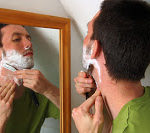-
Nov 17 2021 A Quick Look into Attachment Styles
There are plenty of theories that try to explain how, and why, people connect with others through certain patterns of behavior. One of these theories is called the attachment theory. The biggest known idea behind it is that people have different “attachment styles” with their romantic partners. When looking at the four different attachment styles, they each point to different ways people respond to others through behaviors, emotions, and instincts.
The attachment theory was developed in the 1950’s by John Bowlby and Mary Ainsworth. They believed that people’s attachment styles come from how caregivers treated us as children. Through those interactions early on in life, we learn how to interact with our romantic partners.
As is well known, parenting does not come with a handbook. Unfortunately, three of the four attachment styles are based on negative interactions with caregivers. There are two main groups of attachment styles: “secure” and “insecure.” Then, there are three different types of insecure attachment.
Below are general descriptions of the four attachment styles:
- “Secure” attachment: This is the style considered the most “healthy.” People with a secure attachment style are more open to expressing emotions with their partner while being independent.
- “Anxious Preoccupied” attachment: The anxious preoccupied style is when someone has lower self-confidence and higher praise for others. Being alone for a long period is a large source of anxiety, and seeking reassurance is common.
- “Fearful Avoidant” attachment’: Fearful Avoidant attachment is when someone hopes for a relationship but has a difficult time trusting or relying on others.
- “Dismissive Avoidant” attachment: This style is when a person may view themselves as better off alone. They see others as a risk of weighing them down.
Almost everyone is a mix of different attachment styles. As humans, we all grow up with unique forms of caregiving. So, according to the theory, it’s normal for people to develop different ways of how they interact with their partner. The significance of knowing there are more types than talked about might help alleviate stress of being misunderstood in a relationship. A lot more people deal with the same emotional, self-looking reflections when with a partner. Knowing that you aren’t alone and having a sense of support could be a good first step towards growing for yourself and better communication with those you love.
Attachment theory brings up a new way to also understand our partner’s behaviors too. We can work with our partners to see how there may be different attachment styles, and different ways of growing up, that bring your relationship to where it is today.
Of course, there is no end-all-be-all answer to why we connect to our partners in the ways that we do. Also, none of this article is meant to be a universal band-aid for any problem in any relationship. But, knowing that theories like the attachment theory exist can help nourish growth in your relationships. Not only could noting attachment theory help with your romantic partner, but it can also help with building a better relationship with your own kids. Paying attention to being a model for them of a loving, secure relationship can help them grow to be comfortable in their future relationships.
-
Feb 13 2018 Making The Most Of A Bad Situation
Using Holistic Methods To Grow From A Major Life Change
Going through a major life change can have strong effects on your emotional, physical, and mental well-being, whether good or bad. It’s difficult to know how to move forward after such a change, especially if it involved the death of a loved one, a divorce, or a move to a new and unfamiliar town, because those events can alter us in unexpected ways. However, it’s important to learn how to cope and make those changes work for you, even if it seems like it’s in a limited way at first. Taking this opportunity to better yourself or your life can help you heal following such a major transition, and using holistic wellness techniques can have a major positive impact on your overall well-being.
Here are some wonderful holistic approaches to wellness after a significant life change.
Get organized
Getting a divorce or making a big move can be extremely stressful; however, if you look at it as a chance to declutter and get organized, you’ll actually be helping to improve your mental state. Holding onto physical items from the past can keep you from moving forward, especially if there are strong memories attached to them. Go through your belongings and make a keep pile, a trash pile, and a donate pile, and think hard about what you want to keep. Letting go of some of those things — and perhaps finding a good home for them somewhere else — can help you move on after a major life change. Remember that you don’t have to get rid of everything; if there are several items that you don’t use much anymore but want to keep, consider boxing them up to go through at a later time when things have slowed down a bit and the task doesn’t feel as overwhelming.
Give back
Helping others can have a huge positive impact on your mental health and emotional well-being, and the time period following a big change in your life is one of the best times to get involved. You can use your own experiences to make a difference in the lives of others; for instance, if you lost a loved one to cancer, you might start a nonprofit that raises awareness about the disease, or sell your artwork and give the proceeds to a local hospice. Think about the best ways you can get involved in your community.
Treat your body and your spirit right
Many life changes bring stress and anxiety or even depression, so it’s important to focus on your health and use the time immediately following to get serious about the well-being of your body, mind, and soul. Daily exercise helps tremendously with stress and anxiety and can help you get into shape, if that’s what you’re after. Eating well-balanced meals with plenty of dark leafy greens is a good idea, too, as is getting enough rest. This can sometimes be easier said than done when you’re going through a rough time, so establish a bedtime routine that includes relaxation, such as taking a hot bath or lighting a lavender candle. Take a break from the screens — computer, phone, and television — before bed as well, as this can help you sleep better.
Eliminate toxic relationships
Going through a period of change in your life means you can really get to know who your real friends are. The people who are there for you and support you unconditionally are the ones you should maintain relationships with; anyone who only contributes toxicity to your life should be let go. Surround yourself with people who make you feel good and who you feel good being around.
Holistic health in addiction recovery
Perhaps one of the biggest life changes someone can experience is beginning a path to sobriety after struggling with an alcohol or drug addiction. Holistic therapies, especially when combined with the above tips, can be extremely beneficial to those in addiction recovery. Acupuncture and hypnosis are therapeutic and cathartic, and patients may see benefits as early as their first session. Activities like yoga and meditation can be performed alone or with a group, and can help establish a lifelong mindfulness practice that will be helpful on the journey to long-term sobriety.
Remember that you may need someone to talk to during this transition period, so consider seeking a counselor or therapist who can help you get through it. Reach out when you’re feeling low, especially if you think you might be suffering from depression.
Author: Dana Brown
-
Apr 27 2017 Women’s Empowerment
In today’s society, it’s difficult for a woman to feel empowered. We recently held an all women’s event where we discussed the struggles women have in feeling empowered and finding their voice in not only relationships, but in life. We discussed the importance of boundaries, self care/love and just plainly being nice to other women. In the video, I go into detail on the importance of each of these topics.
Boundaries and self-identity
Boundaries are really important. To have a healthy relationship, both partners should know each other’s wants, fears and limits. You should feel comfortable communicating your needs with your partner without worrying about how they will react. Boundaries are important because they make sure that each person’s needs are being met. In relationships it’s important not forget who you are. It’s very easy to morph into your partner and women are notorious for this. This is where boundaries come into play. Boundaries are put in place in order to protect you and your identity. Don’t let anyone get away with crossing one of your boundaries. Know who you are and don’t let anyone change you.
Self Care/Love
You do you. To be the best version of yourself, you need to be able to take a step back and take care of yourself. Take the time to treat yourself to that new top you’ve been eyeing, that new lipstick shade that came out or those new running shoes. Go get a mani/pedi or a massage or go for that workout you’ve been putting off. The hour or two that you take to yourself when you need it will recharge your batteries in a way you never thought. As women, I know that it is sometimes difficult to be able to justify spending time on yourself, especially if you are a mother. There is always something that needs to get done. However, not taking care of yourself can put you in a worse situation. Your attitude towards things may change and you may find yourself to be less happy. It’s ok to be selfish when you need to be. Showing yourself some love can have everlasting effects and will benefit you and those around you.
-
Mar 28 2017 Why Love Alone Really Isn’t Enough
If you have ever found yourself stuck in the cycle of an unhealthy, destructive, codependent or abusive relationship, and the heartbreak that eventually occurs either as the cycle continues or when the relationship ends, it is likely that someone well-meaning in your life has told you that “love in itself is not enough”. If we’ve been through enough of these painful relationship experiences, sometimes we become so accustomed to hearing this phrase that we start to dismiss it as nothing more than an overused cliché. However, despite the often-irritating nature of clichés, they continue to exist because there is usually truth to them. The problem with the above phrase is that it is often stated as a platitude by well-meaning friends or family members- without any real explanation following it. When we are hurting from a damaging relationship or the aftermath of it, hearing this can feel dismissive. Therefore, it is easy for us to dismiss the idea in turn. Here, I will deconstruct what it really means for love in itself to not be enough.
In our society, we have been conditioned to believe from Hollywood, Disney movies and endless love songs that “love is all you need” (think, Beatles). But in the real world, compatibility of values, healthy compromise and mutual respect for one another’s personality, beliefs and perspectives (even if you don’t share them) matter more. While some of these key healthy relationship qualities will look different for each unique couple, I have listed some examples below.
Mutual respect sounds like this:
“I will accept and appreciate my partner for all the traits that make up the person that he is; just as I want to be accepted and appreciated for the person that I am.”
“It is important to me to share my beliefs with my partner. My partner may not share all of my beliefs, but I want him to listen (respectfully) without dismissing me.”
“I am intelligent and I value intelligence in a partner. I want my partner to remember to respect my intelligence just as I will respect his. I want us to both consider that there are various measures of intelligence rather than attempt to compare ourselves to one another in this respect”.
Healthy compromise sounds like this:
“I have great respect for education and will support and be proud of my partner as he pursues his. However, it is important that my partner be serious about investing time and attention into our relationship and not allow for it to be neglected during his schooling.”
“It is important that my partner and I each have friends of our own and that we encourage one another to spend time with them. I am sure there will be times when we will prefer to spend time with our friends rather than with one another. I will support this as long as our priority remains on our relationship.”
“I am a ‘cheesy romantic’. I am aware that Valentine’s Day is a “Hallmark Holiday” but I still want to celebrate it. I also want to kiss my partner on New Year’s Eve. Although I know these holidays are less important to my partner, I want him to adopt an ‘It is important to me because it is important to you’ attitude regarding holidays such as these”.
Compatibility of values sounds like this:
“I know that my partner and I have the same beliefs regarding marriage, children, and/or spiritual practices.”
“My partner and I do not share the same beliefs regarding marriage, children and/or spiritual practices. However, we accept and respect these differences and have come to a compromise about what this means for our future. We feel secure that there are many other important values that we share. We both believe in long-term commitment, the importance of maintaining a relationship with one another’s family members, agree on how to manage finances and share the same passion for charity work.”
When I reflect back on my first real relationship, I wish I had listened to my friends when they told me that love alone was not enough. However, I believe that no unsuccessful relationship is “a waste of time” because it teaches us more about what we truly need in a relationship. Lacking these key healthy qualities in my own relationship taught me just how important they truly are. If you find that your current relationship or history of relationships lack these qualities and would like some support in breaking this cycle and finding a healthy, fulfilling relationship, please feel free contact me!
-
Nov 19 2015 Dating the Right Way
Unfortunately, not every person is successful when it comes to dating, and if you seem to fall into that category, there are some things you can do. Therapy is a great way to find the person of your dreams.
Know Yourself
The most important thing to remember when you date is to know yourself. If you don’t have a clue of who you are, maybe it is time for some therapy work. Broken people find broken people. Knowing and loving yourself is imperative if you want to be successful when it comes to dating.
Don’t know a good therapist? Call and schedule an appointment so that you can find the underlying cause of your unsuccessful dating patterns. Dr. Renee Winters is an expert when it comes to dating and can help you come to terms with what you do and do not like about yourself.
Write down a list of qualities that you are looking for in a potential partner. Make sure that you include, “no go’s,” and, “would consider,” traits. Be detailed and concise with your list writing down such things as, “I want him/her to be caring.” Ask yourself what you mean by caring and who you want your potential dating partner to care for or care about. Caring can mean caring for a family member or a four-legged animal member. If you want a potential partner to be caring, it is important that you dialogue with your date to see if he is capable and willing to provide the type of care required to meet your needs.
Date with a List
If you have a habit of getting caught up in the emotional aspect of dating, you need to step back. Feeling a connection, an unbridled passion, sparks, or fireworks does not dictate a strong and healthy relationship. The whimsical romance displayed in movies can lead to disappointment, movies glamourize this attraction. That connection you feel may be purely physical and could quickly fade once you get to know each other better. Always date with your list in hand.
You are searching for someone to share your life with, not a kitten, or a puppy. It is important to stick to your goals and remain true to yourself. Settling for someone because you are afraid to be alone can lead to an emotional roller coaster that can be hard to end. Be picky, after all, marriage is forever.
Understand Dating Rules
Make sure that you understand the dating rules before you head out the door. That way you can make wise and informed choices. There is a right way and a wrong way to conduct you on a date. Know the protocols for each specific date and how to begin and end each of these dates with the right amount of involvement.
Schedule an appointment with Dr. Renee Winters who can help you understanding the dating rules more clearly and can help put together an action plan for better dating results.
Check Please
While on a date if items illuminate that are “no go’s”, politely finish the meal and call the date over. Don’t waste your time with someone who has a “no go”, even if it is the hottest celebrity you know. Again, we are not settling for a puppy, but rather a life mate. Be considerate of feelings, but verbalize clearly that you have no intention of moving forward.
Look for Red Flags
Make sure that you are constantly checking for red flags as your dates progress. Remember, people tend to put their best foot forward at the beginning of a date, therefore there may be underlying red flags that you aren’t seeing. Look for red flags in other areas such as how the person behaves behind the wheel, how he or she treats others, their viewpoints on hot topics, and anything else that makes the hair on the back of your neck stand up.
Communication is the key when it comes to any new relationship. If disagreements or arguments enter the picture early, ask yourself why. If your date is argumentive or defensive from the starting gate, it is best to move on. You are not a therapist and delving deeper into reasoning for their bad behavior is not your job in dating.
Numbers Game
Dating is a numbers game. Never quit and work through your frustrations. Dating is like fishing. Throw your line back out and wait for the next catch. You never know if “the one” is next on list of potential suitors. If frustration persists, take a time out, catch your breath and go back in with a renewed sense of purpose. What you project out, will land right back in front of you. Date with good energy.
When looking for a life partner, there is no sex in dating until after the 6-7th date. If you want to have sex, find it with someone else, not with a potential life mate. This is a huge rule violation that both men and women struggle with in the dating process that can lead to emotional turmoil and breakup.
Professional Opinion
Make sure that you always discuss any insecurities or uncertainties with a professional before you consider ending things with your date. Your views may be skewed causing you to say good-bye to your perfect match. Don’t ask your jaded friends, your mother, or your single friends about your potential life partner, as their opinions may not be in your best interest.
If you would like to know more about dating the right way, schedule an appointment with professional psychologist Dr. Renee Winters who can help you find Mr. or Ms. Right. Call or click and schedule your appointment today.
-
Jan 07 2014 How to Improve your Self-Esteem Without Pulling Your Hair Out
Self-esteem is something that is instilled in all of us when we are young. Constantly being criticized by your own family, your friends, and society in general tends to wear down even the most confident people. Feelings of low self worth can creep up even in adult hood when an incident can trigger a negative experience from the past.
Low self-esteem can result in a loss of self-confidence making even the simplest decisions impossible. For the next couple of weeks, I’m going to go over some of the things you can do to improve your self-esteem.
Dress up for the Occasion
You are more conscious of your appearance than anyone is and if you find yourself getting a bit too comfy in your jammies it’s time to step it up a bit. Treat yourself to a new pair of jeans or if you spend the majority of your time at home, buy a new pair of yoga pants. Throw out those old sweat pants and put on a new pair of jeans when you head to the grocery store.
Keep it Clean
Your personal appearance includes your hygiene. Bathing, shaving daily, brushing, and flossing, and wearing clean clothes will boost your self-esteem and make you feel better about yourself.Straighten Up
It may sound crazy but standing tall exudes self-confidence. Folks who are constantly slumped over give off a lack of self-confidence. Stand up straight and keep your shoulders back. Not only will you feel better, but also you will make a positive impression that will make you feel empowered and alert.Get Off the Couch
You don’t have to be a work out fanatic to exercise on a regular basis. Find something that you enjoy and stick with it whether it’s a 30-minute walk every day, a 50-lap swim or a row around the lake. When you work out you are doing something to improve the way you look. When you look better, you feel better. It’s also a good way to do something more constructive. When you work out in the morning you feel energized and refreshed making your day much more productive.Do Unto Others
Give back to the community. Volunteer at your church or local youth club. Help with the food drive or spend Saturdays in the food kitchen. When you give back, you are helping the rest of the world leaving you less time to fester on your personal flaws.Nice Shirt
Compliment others and you will begin to break the draining cycle of negativity. When you praise other people, you become likable and that builds self-confidence. When you look for the best in those around you, you will begin to shine.
Well it’s time for another client, but I will be back next week for part two of, “How to Improve Your Self Esteem without pulling your Hair Out.” In the meantime, if you are unsure about anything in your life, come in and talk to me. I’m in Upland and ready to take your call or answer your email.
-
Jun 24 2013 Four Tips That Can Help Your Marriage
 For most couples the day that they said, “I do,” marked the beginning of happily ever after, but life isn’t a fairy tale, and if you and your partner are finding it tough to get along there are some things that you can do to improve your relationship.
For most couples the day that they said, “I do,” marked the beginning of happily ever after, but life isn’t a fairy tale, and if you and your partner are finding it tough to get along there are some things that you can do to improve your relationship. Always Look At the Bright Side
Instead of pointing out all of the negatives that annoy you about your spouse or partner, try saying positive things. Don’t complain when he doesn’t throw his clothes in the hamper, instead, compliment him on cleaning out the dishwasher or tidying up the bathroom. Make it a habit to say one nice thing every morning when you wake up. Before you know it those things that you found so annoying could become a thing of the past.
Create a Plan
Money can cause real problems in a relationship, in fact, it is one of the main reasons couples end up in divorce court. Married couples and partners who live together will often fight about how they spend their money and will usually wake up one day finding themselves in debt. If you talk about your finances and create a budget and spending plan, the two of you are less likely to fight about money helping to eliminate future conflicts when it comes to finances.
Four Tips That Can Help Your Marriage
It Takes Two
Often times it is difficult to get used to the term, “We,” especially if you have been on your own for a while. When you are in a committed relationship it is important to remember that you are a couple and using the word, “We,” instead of, “You,” is vital especially during an argument. If the two of you are disagreeing about communication don’t say, “You need to talk,” instead tell him or her that, “We need to talk.” When you are in a relationship, you must look at you and your partner as a whole instead of separate entities.
Sharing is Caring
When the two of you learn to communicate with each other on a daily basis, you are becoming more intimate with each other. Couples who have been married for decades will gladly tell you that they know everything about one another. When you and your partner share your wishes, dreams, and daily thoughts, you both feel included and the bond that you have will begin to grown. When you share with each other, it helps to reinforce the trust that you have and will create a solid foundation for communication.
Of course, not every partnership can survive without the help of a professional. If your relationship is in trouble and you are both ready to call it quits, it may be time to talk to a qualified therapist.




















